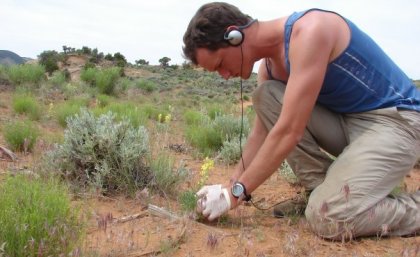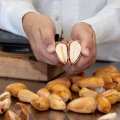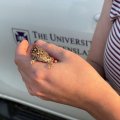
Efforts to control invasive plant species and to help plants withstand extreme events could be boosted by a new international study led by researchers from The University of Queensland.
The research team has developed an accurate framework to explain Earth’s diversity of plant growth forms, functions, and their ecological roles.
Lead author Dr Roberto Salguero-Gomez of UQ’s School of Biological Sciences said the plants’ “life history strategies” framework showed great promise to predict plant population responses to environmental change.
“Australia spends $4 billion a year to eradicate invasive plant species,” he said.
“This framework could give us a better idea of which plant species are likely to become invasive under different conditions, saving taxpayers a large amount of money.
“The framework also looks at the resilience of plant populations to events such as climate change, fires, floods and hurricanes which destroy plant populations.
“It can inform land managers to understand which species are likely to be more resilient to destructive forces, leading to better land recovery projects.”
Dr Salguero-Gomez said identifying patterns in life-history strategies was essential to predicting population persistence, extinction, and diversification.
“Understanding how life-history strategies are structured is fundamental to our understanding of the evolution, abundance, and distribution of species,” he said.
“Plants exhibit a wide range of patterns of longevity, growth, and reproduction, but the general determinants of this enormous variation in life history are poorly understood.”
To study the drivers behind plant life-history variation, the scientists based in Australia, Germany, Denmark, the Netherlands, England and Ireland used a two-dimensional graph similar to the approach developed decades ago for vertebrates.
“We used a large database to explore the life-history strategies of 418 wild plant species globally – from herbs to giant trees ‑ using the model,” he said.
Dr Salguero-Gomez is an Australian Research Council Discovery Early Career Research Award fellow and his UQ colleagues on the study were Dr Simon Blomberg and Honorary UQ Professor Yvonne Buckley of Trinity College, Ireland.
The research is published today in the Proceedings of the National Academy of Sciences (PNAS).
It is supported by the Max Planck Institute for Demographic Research, in Germany, the Australian Research Council and a Marie-Curie Career Integration grant.
Media: Dr Roberto Salguero-Gomez, r.salguerogomez@uq.edu.au, +61 0426 700 116










